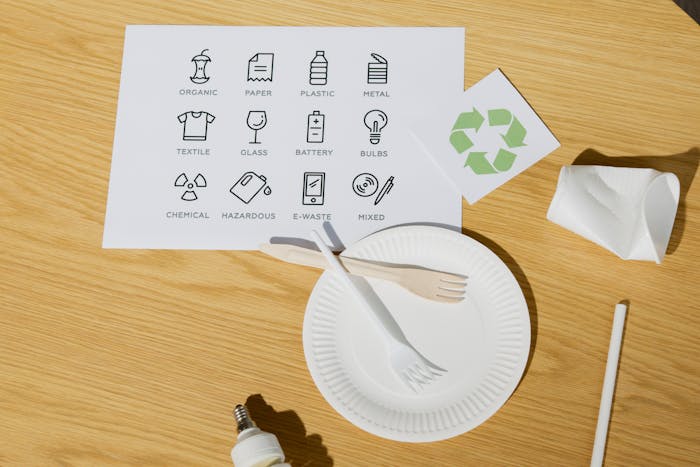Eco-conscious products have become essential for households, restaurants, and event planners who want dining solutions that align with environmental values. Plates made from natural fibers and renewable resources provide the convenience of disposables while offering a safer alternative for the planet. However, using these products effectively requires an understanding of how to dispose of them properly.
For many, the disposal process can be confusing because facilities and guidelines vary across regions. Compostable plates need specific conditions to break down into safe organic matter without leaving harmful residues. This article explores correct disposal practices, practical tips for households, and how communities can benefit from composting systems.
Identify Certified Products Before Disposal
Proper disposal begins with knowing whether the product is certified for composting. Certified items are tested to ensure they meet recognized breakdown standards in industrial facilities. These standards confirm that the plate will decompose into safe materials without generating toxins or microplastics during the process.
Consumers should look for certification symbols on packaging to verify authenticity. Items without clear certification may appear environmentally friendly but fail to compost fully, creating waste that contaminates systems. Identifying approved products ensures that every plate follows the intended decomposition path.
Home Composting and Its Limitations
Many people assume that compostable dinnerware will break down in backyard piles. While some products may decompose slowly under such conditions, most require industrial-scale facilities for complete processing. These facilities provide controlled heat, moisture, and microbial activity that cannot be replicated at home.
Backyard piles lack sufficient conditions to handle thicker materials, leaving fragments that take years to break down. Adding unsuitable items may also disrupt nutrient balance in garden compost. For home setups, only products labeled safe for household composting should be included.
Industrial Composting Facilities as the Best Option
Industrial composting facilities deliver the most reliable solution for disposing of certified dinnerware. These facilities operate under controlled conditions that accelerate decomposition, ensuring full breakdown within a defined period. Access to such sites allows communities to handle large amounts of organic waste efficiently.
Many urban areas offer collection services for such items, making disposal easier for residents and businesses. Participants can send certified dinnerware to these centers without fear of contamination. Facilities then transform waste into nutrient-rich compost used for landscaping or agriculture.
Separate Items Before Disposal
Separation plays an essential role in ensuring that plates are processed correctly. Mixing compostable dinnerware with plastic or other non-organic waste undermines the entire process. Contamination forces facilities to divert loads to landfills, defeating the purpose of eco-conscious disposal.
Proper sorting ensures that systems remain efficient and reliable, enabling materials to break down as intended. Clear labeling on bins makes disposal easier for guests at events or in public spaces. Consistent separation habits help create higher-quality compost that benefits agriculture and landscaping projects.
Community Impact of Correct Disposal
Proper disposal practices benefit more than individual households; they strengthen entire communities. Composting reduces reliance on landfills, lowers methane emissions, and returns nutrients to the soil. These changes lead to cleaner air, healthier land, and improved environmental conditions for future generations.
Events that use certified products and dispose of them responsibly demonstrate leadership in eco-conscious practices. Municipal programs gain support when citizens and businesses participate actively. Every correct disposal choice contributes to a cycle of renewal that builds community pride.
Correct disposal ensures that certified products achieve their intended purpose without harming the planet. Following guidelines for compostable plates allows communities to enjoy convenience while promoting environmental responsibility. Every plate disposed of properly represents progress toward a greener future. This simple action reinforces the connection between everyday choices and long-term ecological preservation.


